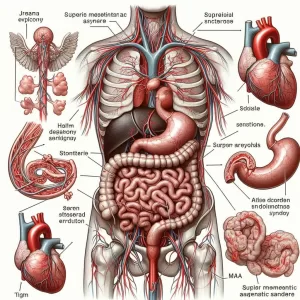**Ice Hack Diet: Ultimate Weight Loss Savior or Dubious Trend?**
Table of Contents
The ice hack diet isn’t about living off of ice or eating only alpine foods. It’s a weight-loss strategy based on the idea that cold exposure speeds metabolism and helps burn calories.
Your metabolism is the rate at which your body uses and stores energy at the cellular and systemic (whole-body) levels. Speeding up your metabolism is often associated with weight loss. Burning more energy than you consume, after all, is the mantra of most weight management programs.

Many gimmicks and fad diets claim to boost your metabolism, but research suggests cold exposure like that in certain variations of the ice hack diet may actually work. However, how it translates into pounds lost remains unknown, and individual results may vary.
What is the ice-hack diet?
The Ice Hack Diet is a weight-loss framework that focuses on cooling your body temperature in order to burn more calories. At its simplest, it involves adding ice to your diet, drinking cold liquids like smoothies, and consuming only cold foods.
If you’re looking to take the ice hack diet to the extreme, food choices can be paired with cold temperature exposure, like ice baths, cold showers, and the application of ice packs throughout the day.
The goal of the ice hack diet is to make yourself cold, either from the inside out with food or from the outside in with environmental exposure.
Being cold puts your body in what’s known as cold-induced thermogenesis, a physiological state where your metabolism naturally increases as a way of keeping you warm.
Supporters of the ice-hack diet believe this increase in metabolism, paired with standard caloric deficits, can speed up weight loss.
What’s included in the Ice Hack Diet Recipe?
The ice hack diet, in its fad version, primarily promotes the consumption of cold beverages, foods, and ice. Anything goes, as long as it is cold and within your caloric allowance. Between meals and snacks, you’re allowed as much ice as you want.
Can the ice method help you lose weight?
As a relatively new diet, there is no research proving the ice hack diet, specifically, works for weight loss.
Like any diet, the ice-hack diet may lead to weight loss naturally if you’re on a caloric deficit (taking in less energy than you’re burning).
The ice hack diet also involves consuming ice, which means you’re increasing your daily water intake. Consuming more water, particularly before meals, can help maintain the feeling of fullness, which might make you less likely to experience cravings or overeat at mealtimes.
A small study from 2022 found cold foods are less likely to cause high insulin levels than hot foods. Over time, high insulin levels can lead to insulin resistance, a condition linked with obesity and diabète de type 2.
Ultimately, however, the temperature of your food is unlikely to be a primary factor in weight loss success. While it’s true your body increases metabolism to keep you warm, cold foods can’t make you cold enough long enough to significantly affect body weight.
Older research, for example, suggests the temperature of cold carbohydrate and electrolyte drinks starts rising to meet your body temperature within 5 minutes of drinking them.
Does the ice hack increase your metabolism?
Although cold foods alone might not be enough for metabolic benefits, environmental cold exposure in more advanced versions of the ice hack diet may be helpful.
Taking cold showers, sitting in ice baths, and standing outside in cold air may have benefits.
In theory, regularly exposing your body to cold water or air could boost your metabolism enough to encourage weight loss over time. Unlike eating cold foods, environmental cold exposure affects the whole body, resulting in whole-body activation.
According to a 2022 review, acute, regular cold exposure increases energy burn by activating and promoting the production of brown adipose tissue in the body.
Brown adipose tissue plays a key role in thermogenesis, your body’s production of heat, and has a high rate of nutrient consumption and energy burn.
According to a 2020 analysis, levels of brown adipose tissue are lower in people who are overweight or obese.
The benefits of cold exposure for weight loss may extend beyond metabolism as well. A 2022 review on cold water immersion notes that limited research suggests cold exposure may increase brown adipose tissue as well as reduce insulin resistance, a condition that is linked with obesity.
The authors also note that cold water immersion may provide other health benefits, including increased tolerance to stress and lowered cardiovascular disease risk.
However, most of the studies included in the review were small and included only healthy subjects. More research is needed to determine whether cold water immersion could be beneficial for weight loss.
Is the ice-hack diet safe?
Eating cold food isn’t automatically bad for you, but regularly eating only cold food may complicate conditions related to gastric emptying, or how quickly food moves through your digestive system. Cold foods may decrease stomach contractions in some people, which could worsen conditions like gastroparesis.
le American Heart Association (AHA) also cautions against spontaneous cold plunges without acclimation. Jumping into extremely cold water can cause cold shock, a survival response that causes rapid breathing, an increased heart rate, and elevated blood pressure.
Cold shock can be exceptionally risky. It can cause an involuntary gasp reflex, which may lead to drowning. For people with existing cardiovascular conditions, it could cause life-threatening complications.
Keeping these tips in mind can help you start cold exposure safely:
- Wrap all ice packs in a towel instead of applying them directly to your skin.
- Keep exposure times short to begin with, and gradually build up your tolerance.
- Start in the shower, where you can control the water temperature.
- In ice baths, wear protective layers on your vulnerable extremities, like your hands and feet.
- Be mindful of your exposure temperature in relation to frostbite et hypothermie onset (the colder it is, the faster these conditions set in).
- Familiarize yourself with the warning signs of hypothermia and frostbite.
Bottom line
The ice hack diet promotes the consumption of cold foods, icy drinks, and plenty of ice as a snack. While it takes its concept from the physiological process of cold-induced thermogenesis, eating cold foods alone likely won’t affect your metabolism significantly.
Adding cold environmental exposure as part of the ice-hack diet may bring more benefits. Regular cold exposure may boost your body’s energy burn by promoting and activating brown adipose tissue.
Due to the potentially serious health risks associated with the extreme cold, it’s important to consult with your doctor before starting a cold exposure practice.
Q&A About “What Is the Ice Hack Diet and Can It Help You Lose Weight?”
1. What is the ice-hack diet?
The ice hack diet is a weight loss plan centered around consuming cold foods and beverages to lower your body temperature and boost metabolism [1]. This can involve adding ice to your diet, drinking cold liquids, and eating only cold foods [2]. In more extreme versions, it might also include cold exposure through ice baths, cold showers, or using ice packs [2].
2. Can the ice-hack diet help with weight loss?
There’s no specific research on the ice hack diet itself for weight loss [3]. However, there are some potential benefits to consider:
However, the impact of food temperature on weight loss is likely minimal [5]. Cold foods won’t keep you cold enough for a significant effect.
3. Does the ice-hack diet increase metabolism?
There isn’t enough evidence to say for sure if the ice hack diet with just cold food increases metabolism significantly [5]. However, cold exposure practices included in some versions might be helpful.
4. Is the ice-hack diet safe?
Eating cold food generally isn’t risky, but a diet solely based on cold food might affect digestion in some people with conditions like gastroparesis [9].
Cold exposure practices also require caution:
Consult your doctor before starting any cold exposure practices.
5. Takeaway points about the ice-hack diet?
**Question: What is the Ice Hack Diet?**
**Answer:** The Ice Hack Diet is a weight loss trend that involves consuming large amounts of ice water throughout the day. Proponents claim that drinking ice water boosts metabolism, leading to increased calorie burn and weight loss.
**Question: Is the Ice Hack Diet Effective for Weight Loss?**
**Answer:** While drinking cold water can temporarily increase metabolism due to the body’s thermic effect of water, this effect is minimal and unlikely to contribute significantly to weight loss. There is no scientific evidence supporting the claims that the Ice Hack Diet can promote lasting weight loss.
**Question: Are There Any Potential Risks of the Ice Hack Diet?**
**Answer:** Yes, excessive ice water consumption can lead to:
* **Electrolyte imbalances:** Diluting the body’s electrolytes with excessive water can disrupt normal bodily functions.
* **Dental damage:** Biting on ice can damage teeth, especially if existing fillings or crowns are present.
* **Gastrointestinal discomfort:** Ingesting large amounts of ice water can cause bloating, flatulence, and diarrhea.
**Question: Are There Alternative Ways to Boost Metabolism for Weight Loss?**
**Answer:** Yes, there are healthier and evidence-based ways to increase metabolism, including:
* **Regular Exercise:** Especially high-intensity interval training (HIIT) exercises.
* **Protein-Rich Diet:** Protein has a higher thermic effect than carbohydrates or fats.
* **Adequate Sleep:** Sleep deprivation can disrupt hormonal balance and slow metabolism.
**Question: Should You Try the Ice Hack Diet for Weight Loss?**
**Answer:** It is not recommended to rely on the Ice Hack Diet as a weight loss strategy. It is a questionable trend with potential risks and no scientific evidence supporting its long-term effectiveness. Consult a healthcare professional for personalized advice on safe and effective weight loss methods.
Un commentaire
Laisser un commentaire
Articles populaires








# Ice_Hack_Diet: Legitness or Myth